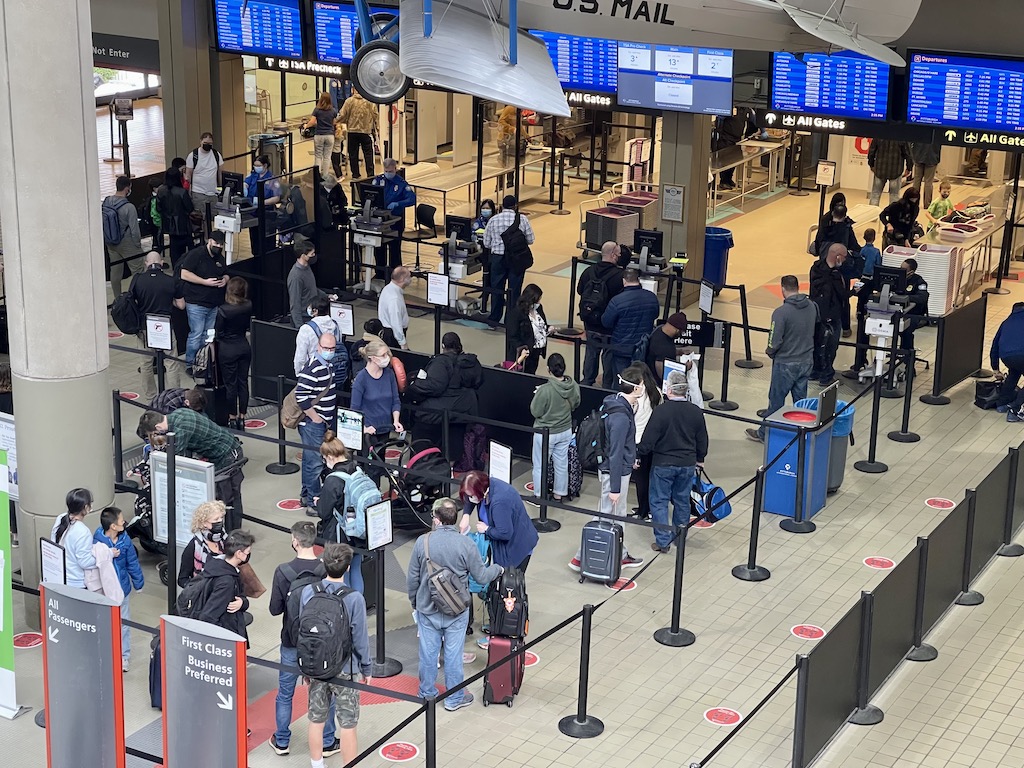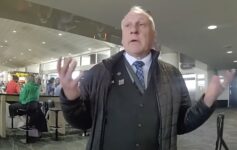
The moment the federal shutdown begins to visibly degrade airport operations, through staff shortages, delays, and cancellations, is likely when travel pressure will finally force a resolution. Maybe it’s time for a little pain?
Why Travel Delays Could Force An End To The Government Shutdown
While the current federal shutdown has dragged on with little political movement, I suspect, as in 2019, it will ultimately be the nation’s air travel system that brings it to an end. Tens of thousands of Transportation Security Administration (TSA), Federal Aviation Administration (FAA), and Department of Homeland Security (DHS) employees are either furloughed or working without pay. The strain is beginning to show, and the prospect of a nationwide slowdown in air travel could become the catalyst that breaks the stalemate.
Warning Signs From The Skies
Transportation Secretary Sean Duffy has already pointed to warning signs across the system. He noted that flight delays are rising as the shutdown continues and that air traffic control staffing levels are becoming unsustainable. On a recent day, he said that nearly half of all flight delays could be traced to controller absences. Over the last two weeks, delays have spiked above historical averages. Meanwhile, hundreds of air traffic controllers have reportedly taken second jobs just to make ends meet while working unpaid, a scenario that mirrors the pressure cooker of the 2019 shutdown.
It isn’t only air traffic controllers feeling the pinch. TSA officers are calling out sick at higher rates, resulting in longer checkpoint lines and slower screening times at major airports, though I have not seen any egregious cases yet. DHS, which oversees both TSA and customs officers, has warned that continued operations under shutdown conditions will become “increasingly difficult to maintain” as the weeks wear on.
The Tipping Point For Travel Disruption
Air travel is uniquely vulnerable to disruption because of how interconnected it is. When a few control centers or security checkpoints slow down, the effects ripple nationwide. Even a modest increase in absenteeism among TSA or ATC staff can translate into hundreds of delayed flights. Duffy himself acknowledged that he “can’t guarantee your flight’s going to be on time” as the impact deepens.
So far, most of the disruptions have been localized or incremental: slightly longer waits at security, modest delays in key hubs, and scattered cancellations. But the pattern is unmistakable. If the shutdown continues through the upcoming holiday travel period, a full-scale aviation slowdown is all but inevitable. That, historically, is when Congress begins to act.
Budget fights can survive abstract headlines about lost paychecks or suspended programs, but not the chaos of nationwide flight delays. The aviation system depends on a tightly calibrated workforce that cannot easily be replaced or paused. The FAA’s training pipeline has already been interrupted, threatening future staffing levels even after the shutdown ends.
As major airports begin reporting cascading delays, airlines will amplify the pressure. Once travelers experience systemwide frustration like missed connections, canceled flights, and hours-long lines, the political cost of the shutdown will spike. At that point, lawmakers on both sides will have every incentive to end the impasse quickly.
CONCLUSION
The nation’s air travel network will likely prove to be the most powerful lever in resolving the government shutdown. While political leaders yell at each other in Washington, DC, thousands of unpaid federal employees keep airports functioning. That balance cannot hold indefinitely. When delays grow visible and travelers feel the impact firsthand, the shutdown’s days will be numbered. Air travel may once again do what Congress has not been able to do: force an end to this tomfoolery.




National Parks closing? Pfffft. People losing their health insurance? Not my problem. Kids going hungry? Meh, a nothingburger. But, TSA Precheck lines closing and folks have to stand in the line with the shoeless, unwashed masses?! Now THAT’S an emergency. Snap to attention, Senators!
I was reading this article as I got the notification from AA that my flight from MCO-DFW that had been delayed was now cancelled. Somehow I was able to book a WN flight departing 58 minutes later, check in, then run to the other side of MCO, pass a security checkpoint, and arrive at the gate 10 minutes before boarding. I’m now in the air. (WN WiFi is free?!)
My point: I’m not sure what to make of air travel. At MCO the operation was a mess, but TSA was running like clockwork. Most of my travels over the past month have been smooth and on time. News reports say otherwise, but all-in-all, nothing really seems worse than it’s ever been.
Trumpo don’t care. Little orange buffoon gets to live his fantasy of being a fickle petty tyrant and run the country into the ground while talking about how great he’s making it
Hopefully things turn around for you!
It’ll “turn around” for me when the fascist wing of the GOP is good and politically gone